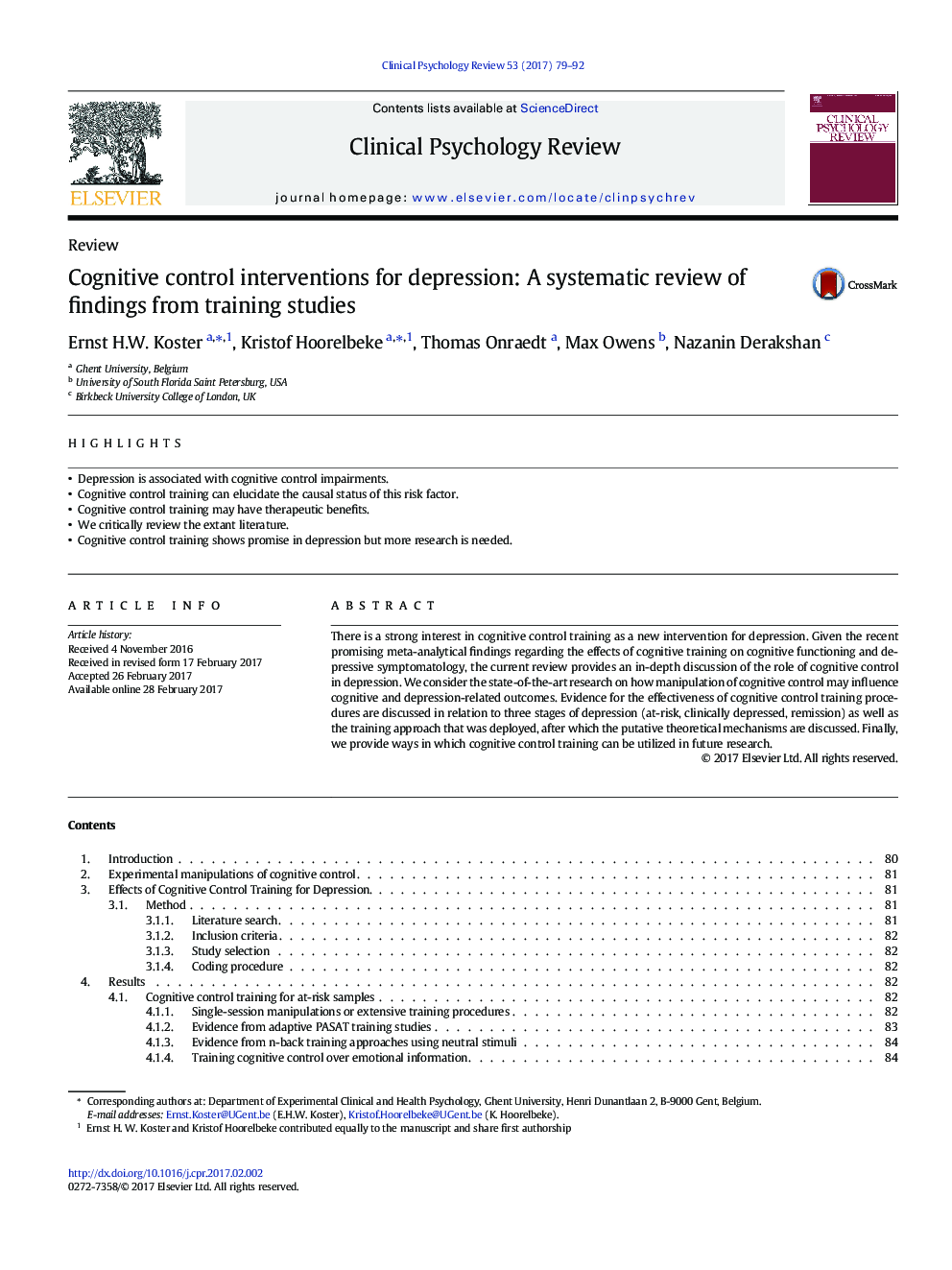| Article ID | Journal | Published Year | Pages | File Type |
|---|---|---|---|---|
| 5038516 | Clinical Psychology Review | 2017 | 14 Pages |
â¢Depression is associated with cognitive control impairments.â¢Cognitive control training can elucidate the causal status of this risk factor.â¢Cognitive control training may have therapeutic benefits.â¢We critically review the extant literature.â¢Cognitive control training shows promise in depression but more research is needed.
There is a strong interest in cognitive control training as a new intervention for depression. Given the recent promising meta-analytical findings regarding the effects of cognitive training on cognitive functioning and depressive symptomatology, the current review provides an in-depth discussion of the role of cognitive control in depression. We consider the state-of-the-art research on how manipulation of cognitive control may influence cognitive and depression-related outcomes. Evidence for the effectiveness of cognitive control training procedures are discussed in relation to three stages of depression (at-risk, clinically depressed, remission) as well as the training approach that was deployed, after which the putative theoretical mechanisms are discussed. Finally, we provide ways in which cognitive control training can be utilized in future research.
